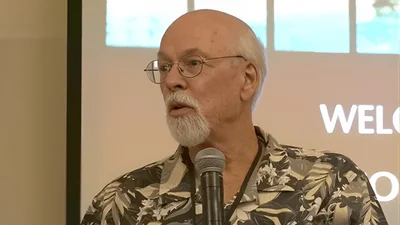New Mexico State University is collaborating with the University of New Mexico on a project funded by the National Science Foundation’s Established Program to Stimulate Competitive Research Collaborations, or EPSCoR.
NMSU’s role in this four-year project involves a total budget of $748,944. The initiative, titled “Harnessing Controlled Environment Agriculture to Secure Sustainability and Economic Growth,” aims to develop and assess modern controlled environment agricultural practices to aid tribal communities in securing food production, developing a climate-smart workforce, and stimulating economic growth. Other partners include Santa Fe Community College, the University of Wyoming, and South Dakota State University. The project was awarded through the NSF Research Infrastructure Improvement-Focused EPSCoR Collaborations Program.
“NMSU Agricultural Science Center at Farmington just completed an Indigenous Farmers Needs Assessment in Northwest New Mexico,” said Kevin Lombard, co-principal investigator for the project and research director for the Agricultural Science Center at Farmington. “Results indicated that while controlled environment agriculture is a new concept and few individuals currently engage in any form of CEA, interest in learning more about CEA agriculture was high and that further research and outreach are warranted. The impact of this project would be to increase food sovereignty and community resilience, especially within tribal communities in the face of climate change.”
The project's goal is to determine the best method for securing Controlled Environment Agriculture food production and quantify its socioeconomic impacts on several tribal communities across New Mexico, South Dakota, and Wyoming, including the Navajo Nation. It aims to characterize how the environment, plants, and microbes interact in hydroponic systems affecting crop yield and nutritional quality; identify environmental, nutritional, and socioeconomic drivers; understand impacts of CEA on tribal communities; and empower these communities through interdisciplinary training aimed at long-term retention of the CEA workforce.
-30-
CUTLINE: Research Director for New Mexico State University’s Agricultural Science Center at Farmington Kevin Lombard is a co-principal investigator on a collaborative project focused on developing modern controlled environment agricultural practices to assist tribal communities. (NMSU photo by Josh Bachman)








